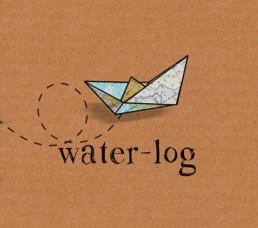In a floating world where self-reliance and ingenuity rule it pays to be prepared. Living in a state where both your plans and the weather can change on you is one thing and you never quite know what issue or challenge might crop up on a boat. But how can you be ready and equipped for this type of unknown? For some cruisers, the answer is to develop a slight hoarder mentality, becoming akin to a seafaring squirrel.
A boat’s bits and bobs take many forms and there are sensible, standard pieces of gear that are essential to each type of sailing. If you’re going bluewater you need a lot of practical solutions for extended offshore time; if you’re a racer you need to investigate the lightest kit available; and if you’re coastal hopping you’ll require a different kind of stuff again. But, when you’re living full-time onboard, there is a tendency for your yacht, or at least parts of it, to be transformed into the aquatic equivalent of a garden shed. And, like the typical shed, the organisation of myriad odds and ends, can easily slide into a shambles.
So what exactly are we collecting? A large amount of it is tools: power tools for when you’re plugged into shore power, and hand tools for a when you’re not. Spanners, sockets, drills, hammers, screwdrivers and allen keys – and you end up needing all of them in both metric and imperial sizes. All this along with screws, bolts, nuts, clips, nails and shackles – some brass, some galvanized, some stainless steel. Gizmos and spares for your engine and sails: extra prop, filters, pumps, impellers, belts and gaskets along with sewing needles, tape and patches in all grades. Ropes and line for all manner of things have to go somewhere too – mooring lines, running rigging spares, lanyards, floating line, high spec dyneema line, washing lines – in fact there are few jobs on board that don’t require a handy bit of string. Also torches and headlamps, with the countless bulbs, batteries, different gages of wire and connections. Plus you’ll no doubt be storing some paints, glues, oils, varnish and cleaners, just to keep on top of the maintenance. Add to that any reference books, engine manuals, or ‘how-to’ guides and you can quickly see how even the minimum essentials can become a veritable quagmire of cruising chaos.
Often when you purchase a used boat, you buy it with a substantial inventory of supplies included. This was very much the case with our yacht and, as it was our first sailboat, it meant that opening every cupboard or drawer became a journey of strange discoveries. After identifying and sorting the vast majority of all these implements I remember still being left with a rather substantial pile of doo-dads, thingamajigs and whatsits. Peculiar-looking objects that were clearly intended for a specific, albeit mystery, purpose sat sadly in a heap while we scratched our heads in vain.
And, of course, you cannot simply ditch the puzzling items. We were convinced that we would stumble into some unforeseen sailing quandary when one or more of these enigmatic thingies would prove to be our absolute salvation… if only we had a clue what to do with it. So we kept them because we were inexperienced and more than a little bit nervous about the life that we’d just embarked upon. We hung on to them for years, along with so many other things under the guise of “you never know”. Until, that is, we were introduced to two things that changed all that: our first child and swap meets.
Suddenly we needed to rethink some of the gear we were stashing so it was there that we offloaded the romantic but impractical gas lamps and paraphernalia; the numerous wine glass holders; the spare covers that didn’t actually fit anything we owned on board. We’d schlepped around a hugely oversized and ridiculously heavy fisherman’s anchor that, while perhaps useful for laying a mooring ball, was entirely unusable and pointless for our boat. We’d had vague thoughts that it could be handy in a storm but reasoned that in reality it was far more likely to put a hole in our hull in the process of deploying it. And we finally parted with the strange hook that was nothing to do with sailing at all but designed to lift industrial sized bags of flour – clearly high up on the previous owner’s “just in case” list.
Ultimately, it’s good to be prepared for lots of sailing eventualities, but sometimes it turns out the items you’ve squirreled away are simply nuts.
